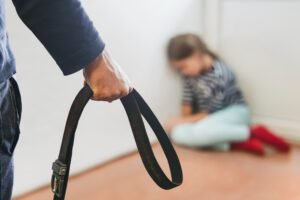The Hands We Cannot Mend: Rethinking Child Discipline in Nigeria

Source: http://punchng.com
Story
The tragic tale of Adamu, a 12-year-old boy from Tumu District in Gombe State, whose hands were amputated following a punitive act by a community member over an alleged phone theft, underscores the perilous culture of punitive discipline prevalent in society. This heart-wrenching incident echoes the 2018 case of Zubair Abubakar, another young boy from Gombe whose hands were similarly amputated after a teacher bound them tightly as punishment.
Both stories shine a harsh light on the extreme measures some adults employ in the name of discipline, measures that irreparably damage the futures of innocent children. While laws like the Child Rights Act (ratified in Gombe in 2022) offer a semblance of hope, their enforcement remains lackluster, leaving children vulnerable to abuses that should belong to a bygone era.
These cases are not mere tragedies but reflections of a systemic failure: inadequate child safeguarding policies, poor implementation of existing laws, and a societal mindset that conflates punishment with discipline.
Senses (Child Safeguarding and Protection Principles):
- Child-Centered Discipline:
Discipline must focus on the child’s dignity, fostering self-awareness and growth rather than inflicting harm. Non-violent disciplinary measures should be the cornerstone of all educational and parental practices. - Effective Reporting Mechanisms:
School authorities and teachers must be equipped with clear protocols for reporting student misconduct to prevent overreach and ensure that due process is followed. - Non-Violent Conflict Resolution:
Parents, teachers, and guardians must adopt non-violent methods of addressing issues. - Holistic Child Protection:
Governments and civil society must ensure robust implementation of child protection laws, alongside campaigns to educate communities about the rights and dignity of children.
Stones (Child Safeguarding and Protection Lessons for Parents, Government, and Society):
- Conflict Resolution Education:
Parents and community members need training in alternative methods to resolve disputes involving children. Programs that promote non-violent conflict resolution can prevent escalation to irreversible harm. - Training in Safeguarding Practices:
Governments and schools must invest in widespread training programs for teachers, emphasizing non-violent disciplinary measures and child safeguarding principles. - Policy Enforcement:
The Child Rights Act must be more than a document. Its provisions should be rigorously enforced through specialized courts, designated child welfare officers, and public accountability mechanisms. - Awareness Campaigns:
Society must confront cultural norms that glorify harsh punishment by implementing campaigns that celebrate positive discipline and emphasize the value of nurturing children’s potential. - Empowering Families:
Borrowing from nations like Iceland, which have successfully tackled youth delinquency, governments should invest in empowering parents through family support programs that address the underlying causes of misbehavior.
Conclusion
The tragedies are not isolated incidents but symptoms of a flawed system that confuses punishment with discipline. As a society, we must transition from archaic punitive measures to a more meaningful “culture of discipline”, one that nurtures children, safeguards their dignity, and equips them with the tools to thrive. Discipline is not about breaking a child’s spirit; it is about guiding them toward transformation and growth.
Source of Image: http://ilt.co.za





